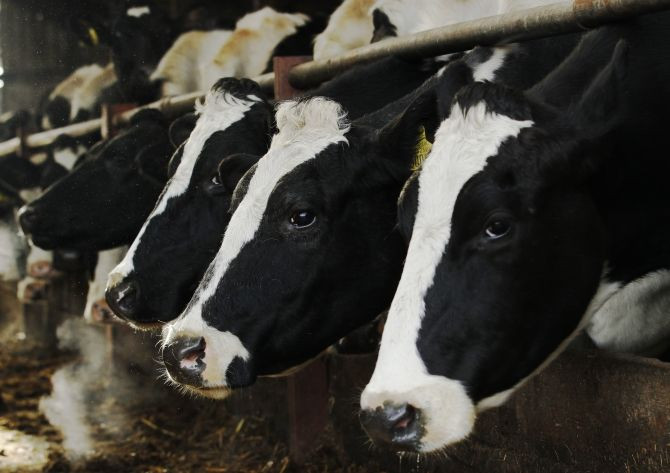What's in Your Beef? A Lot of Bacteria, Evidently

Louise Slaughter, Congresswoman from the 28th district of New York, sent a letter to over 60 meat processors and producers, fast food companies and grocery store chains in order to discern their practices of the use of antibiotics in their animals. As she wrote in the letter,
In the past year alone, we have had more outbreaks of antibiotic-resistant Salmonella associated with contaminated meat and poultry than any other year, leaving behind a trail of victims [who] cannot be treated with common antibiotics. […] Every year, two million Americans acquire bacterial infections during their hospital [stays], and 100,000 die from them – the vast majority due to antibiotic-resistant pathogens. Drug resistance prolongs the length, cost, and severity of the illness. Antibiotic-resistant infections are estimated to cost the U.S. healthcare system in excess of $20 billion every year.
She then followed up with a questionnaire of seven questions, asking them how often they used and purchased animals who had been given antibiotics, whether sick or healthy. Less than half answered. From the rest, Slaughter and her staff obtained information from the internet, which was fairly easy for 22 companies.
Slaughter and her team also found that the overwhelming majority of companies are, in fact, using antibiotics in healthy and sick animals alike, as preventative health measures and as a way to promote faster animal growth. She also found that, for these companies, such use of antibiotics was overwhelmingly linked to the creation of “superbugs,” or antibiotic-resistant bacteria.
Regardless, Slaughter did find some hopeful news. A small number of grocery store chains, meat processors and producers, and fast food chains are making a concerted effort to avoid the use of antibiotics in animals – the likes of Chipotle, Sweetgreen, Whole Foods, Applegate Farms, Bell & Evans, Coleman Natural Foods, Murray’s Chicken, Niman Ranch, and Ozark Mountain Pork. Unsurprisingly, these were also the companies were the most forthcoming about their practices with regards to antibiotics in animals.
The report finishes with the hope of increased scrutiny, transparency, and action taken by the food industry and by the American government.



























